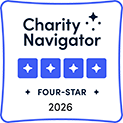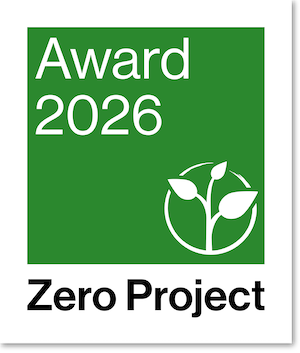The Els for Autism staff has developed innovative, evidence-based programs and services for individuals with autism and their caregivers across the lifespan in three primary impact areas: Early Intervention & Education Services, Recreation Services, and Adult Services. Programs and services are offered both on campus and virtually and are available to individuals and families worldwide.
No. Although “Foundation” is part of our name, Els for Autism is not a grant-giving foundation. We do not provide external grants or monetary sponsorships. However, we do have a scholarship fund to help individuals and families access our programs when financial assistance is needed; eligibility for financial assistance is determined through a qualification process. We may also provide limited in-kind support to fellow autism-focused organizations, based on available inventory.
The Center for Disease Control updated their estimate of autism prevalence in the United States, reporting that about 1 in 31 children (specifically 8-year-olds) have been diagnosed with autism. This increase does not necessarily mean more children are developing autism, but rather reflects better awareness, improved screening and diagnostic tools, expanded definitions of autism, and greater access to services. Boys remain about four times more likely to be diagnosed than girls, and rates can vary by race and ethnicity due to differences in healthcare access and other factors.
Autism is believed to result from a combination of genetic and environmental factors. Known risk factors include having a sibling with autism, certain genetic conditions, older parental age, premature birth, low birth weight, and some prenatal exposures. However, extensive research has shown no link between vaccines and autism. The rise in prevalence highlights the importance of early identification and support for autistic individuals and their families. We are proud to be a leader in serving people with autism of all ages and abilities, with services ranging from diagnostics, early intervention, therapeutic services, education, recreation, and employment and independent living support for adults.
Els for Autism is not a school. However, our two education wings, The Rupert Education Wing and The Shanken Education Wing, are located on The Els Center of Excellence campus and house The Learning Academy (TLA), a nonprofit, tuition-free Palm Beach County charter school serving students with autism ages 3–21.
TLA staff work closely with our on-site clinicians to ensure a seamless transition between school and therapy hours, allowing each child to receive comprehensive support services in one location. In addition to this collaboration, Els for Autism offers a wide range of afterschool recreation programs and provides support for families and caregivers.
No. The Learning Academy and Els for Autism are separate entities. You do not need to be enrolled at The Learning Academy to access our services. For more information on our programs and services, click here.
While our primary mission is to serve individuals with autism, individuals without an autism diagnosis may participate in our programs and services when it does not limit access for someone with autism and when there are no funding requirements that specify an autism diagnosis.
Yes. Els for Autism provides a variety of programs and resources to support caregivers and family members. Our team offers RUBI (Research Unit in Behavioral Intervention) Parent Training, AAC (Augmentative and Alternative Communication) Parent Training, and the FAST (Family Autism Support & Treatment) Program, which includes individual and group-based mental health counseling, care coordination services, and support groups for caregivers and siblings of individuals with autism. We also offer a research-based, community-viable, parent-implemented intervention called Spring Into Action Together (SIAT).
No. Our name is Els for Autism. “Els” refers to the last name of our co-founders, Ernie and Liezl Els. It is not an acronym (E.L.S.) and is not spelled with an apostrophe (El’s).
Yes: Our team of highly skilled professionals provides gold-standard, comprehensive diagnostic evaluations across the lifespan. These evaluations include a detailed profile of strengths and challenges, tailored recommendations to guide the development of treatment goals, and a formal diagnosis of autism spectrum disorder (ASD), when applicable.
Els for Autism is proud to be among the few organizations nationwide utilizing the clinically validated, FDA-authorized EarliPoint™ autism evaluation tool. This innovative tool assists our CADI (Comprehensive Autism Diagnostic and Intervention) team in diagnosing children ages 16 to 30 months who show early signs of ASD. Utilizing EarliPoint™ helps us see more families with reduced wait times, while continuing to provide a gold-standard autism evaluation. In addition to autism evaluations, we also offer psychoeducational evaluations to support educational planning and individualized interventions.
Yes. We accept a number of insurance providers. Please refer to our website for the most up to date list of insurances. Additionally, individuals who receive the Florida Empowerment Scholarship for Students with Unique Abilities may be eligible for reimbursement for services provided by our team.
Yes. In addition to our headquarters in South Florida, Els for Autism has foundations in Canada, the United Kingdom, and South Africa. Our team in the U.S. provides both virtual and global services. Our Global Support Programs, including our Global Outreach Autism Learning Services (GOALS) and our Teaching Educational Autism Methods (TEAM) program, are designed to empower and transform the lives of individuals with autism, their families, and professionals worldwide. We also offer a variety of virtual social and recreation programs, therapeutic services, and support groups to ensure individuals and families can access high-quality support no matter where they live.
Yes: Our Teaching Educational Autism Methods (TEAM) provides valuable learning opportunities for university students seeking internships, externships, and practicum placements. In addition, our TEAM program offers professionals working in the field of autism the chance to observe the implementation of evidence-based practices across disciplines and age ranges through our professional observership program. We also host conferences and offer various webinars and professional development training designed to share current research and best practices with students, educators, and professionals in the autism community.
Yes: We offer internships throughout our different departments.
Yes: The Els for Autism Professional Observership Program offers professionals from around the world opportunities to observe and learn from a highly qualified transdisciplinary team of professionals (e.g. Board Certified Behavior Analysts, Speech-Language Pathologists, an Occupational Therapist, and Music Therapists). Observations of speech-language therapy, occupational therapy, ABA therapy (i.e., behavior therapy) and adult service programs, both on and off campus will be included in each session.
Yes: As a nonprofit, we rely on volunteers to support our programs, services, and events. Our Volunteer Coordinator can match you with the perfect opportunity based on your time and talents.
Yes: You can run your own Affiliate Event, which is a volunteer-run fundraiser that includes Els for Autism as a benefiting charity of the event. While you may immediately think of a golf tournament, we have seen a wide variety of events over the years. From concerts, to pet shows, to 5K run/walks, to fashion shows, we welcome any and all exciting event ideas!
Yes: Every year, we host the Golf Challenge regional event series which take place at top-rated golf courses across the U.S. and Canada. The Els for Autism Golf Challenge is one of the largest charity-driven, amateur golf tournaments. Since its inception in 2011, the Golf Challenge has raised over $40.6 million, supporting our vision of creating limitless possibilities for individuals with autism.
As Ernie Els keeps an active career with the PGA Tour Champions, he is unable to attend every Golf Challenge event.
Yes: Els for Autism staff conducts research to assess methods, pedagogy, and technologies to improve socially significant behaviors for individuals with autism. Research methodology may include direct measurement of the observed behavior or analysis of qualitative or quantitative data. The goals of this research are the dissemination of the findings to the greater autism community and the application of identified interventions with individuals with ASD throughout the lifespan.
As a nonprofit organization, Els for Autism relies on charitable financial contributions, including in-kind donations, to continue providing programs and services to our clients and their families. We invite you to explore our diverse range of giving options, tailored to match your philanthropic goals and preferences.
The Els for Autism team offers a variety of list serves you can subscribe to for updates. Whether you’re interested in educational services, recreational programs, or employment initiatives, our newsletters keep you informed and engaged with everything we’re doing to empower the autism community.
Els for Autism is the name of our organization that implements our programs and services. The Els Center of Excellence is the name of our headquarters in Jupiter, Florida.


















